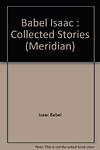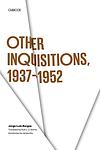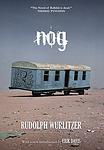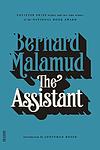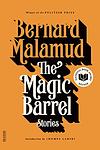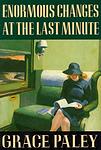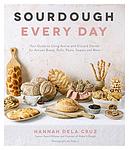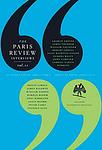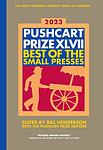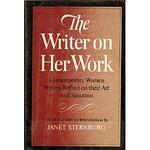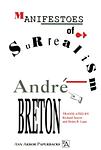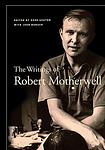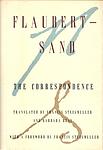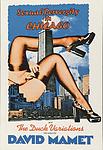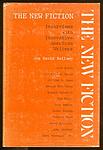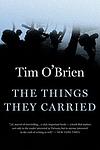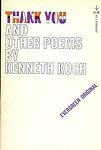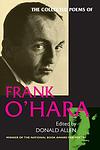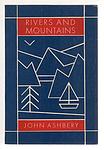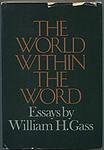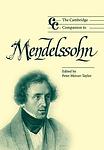Donald Barthelme’s Reading List
This is one of the 284 lists we use to generate our main The Greatest Books list.
-
At Swim Two-Birds by Flann O'Brien
This novel is a complex, metafictional work that weaves together three separate narratives. The first is about a lazy, hard-drinking college student living with his uncle, the second is about a devilish Pooka and a loquacious old man, and the third is about a fictional character named Finn who seeks revenge on his author for creating him poorly. The narratives eventually intersect in a unique and humorous way, challenging traditional ideas of story structure and character autonomy.
-
The Third Policeman by Flann O'Brien
"The Third Policeman" is a darkly comedic and surreal novel about a nameless narrator who, after committing a murder to raise funds for his scholarly obsession with a bizarre pseudo-scientific theory, finds himself wandering in an eerie, nightmarish landscape. He encounters strange characters, including a pair of eccentric policemen who are obsessed with bicycles, and becomes embroiled in a series of increasingly absurd and ludicrous situations. The novel explores themes of existence, reality, and the nature of hell, with a twist ending that forces the reader to question everything they've read.
-
The Collected Stories of Isaac Babel by Isaac Babel
This collection of short stories presents a rich tapestry of narratives exploring the harsh realities of war, the complexities of Jewish life in early 20th century Russia, and the human condition. Written by a renowned Russian author, the stories are known for their vivid imagery, poignant themes, and incisive social commentary. The collection includes famous works like "Red Cavalry", a series of stories based on the author's experiences as a journalist during the Russo-Polish War, and "Odessa Stories", which depicts the vibrant yet often brutal life in the city's Jewish ghetto.
-
Labyrinths by Jorge Luis Borges
"Labyrinths" is a collection of short stories and essays that explore complex themes of infinity, parallel universes, and the blurred lines between reality and illusion. The narratives often feature protagonists who are scholars or librarians, trapped in surreal, metaphysical landscapes. The author's unique writing style combines elements of magical realism, philosophy, and detective fiction, creating an intricate web of narratives that challenge the reader's perception of reality and fiction.
-
Other Inquisitions by Jorge Luis Borges
"Other Inquisitions" is a collection of essays that explore a wide range of topics including literature, philosophy, and metaphysics. The author uses his profound knowledge of world literature and history to delve into complex subjects such as time, identity, and infinity. He also provides insightful commentary on various authors and their works, reflecting on their influence and significance. The book is marked by the author's characteristic style of blending fiction, reality, and scholarly analysis, making it a thought-provoking read.
-
One Hundred Years of Solitude by Gabriel Garcia Marquez
This novel is a multi-generational saga that focuses on the Buendía family, who founded the fictional town of Macondo. It explores themes of love, loss, family, and the cyclical nature of history. The story is filled with magical realism, blending the supernatural with the ordinary, as it chronicles the family's experiences, including civil war, marriages, births, and deaths. The book is renowned for its narrative style and its exploration of solitude, fate, and the inevitability of repetition in history.
-
Correction by Thomas Bernhard
"Correction" is a complex narrative revolving around the life of a man named Roithamer, a genius obsessed with constructing an architectural masterpiece, the Cone, in the center of the Kobernausser forest. The story is told through the perspective of his friend who is reading Roithamer's notes after his suicide. The novel explores themes of obsession, isolation, and the pursuit of perfection, while also delving into the protagonist's troubled relationships with his family and society.
-
Nog by Rudy Wurlitzer
"Nog" is a surreal and psychedelic tale of a man's journey through a chaotic and disorienting world. The protagonist, Nog, embarks on an existential adventure across America, encountering a series of bizarre characters and situations along the way. The narrative is often nonlinear and disjointed, reflecting Nog's fragmented perception of reality. The book is a critique of the American Dream and explores themes of alienation, disillusionment, and the search for meaning in a seemingly senseless world.
-
Gimpel the Fool by Isaac B Singer
"Gimpel the Fool" is a collection of short stories that portray the life of Gimpel, a simple baker who is often deceived by the people in his town. Despite the continuous deceit, Gimpel maintains his faith in humanity and never seeks revenge. Throughout the stories, the protagonist's innocence and naivety are contrasted with the harsh realities of the world, exploring themes of faith, forgiveness, and the inherent goodness of people.
-
The Assistant by Bernard Malamud
"The Assistant" is a story about a struggling Jewish grocer in Brooklyn and his family, who are trying to make ends meet. Their lives dramatically change when a young Italian-American drifter comes to work as their assistant after he was involved in a robbery at their store. The narrative explores themes of guilt, redemption, and the power of good deeds, as the assistant tries to make amends for his past actions, slowly transforming his life and the lives of those around him.
-
The Magic Barrel by Bernard Malamud
"The Magic Barrel" is a collection of thirteen short stories that explore themes of love, suffering, and redemption set against the backdrop of post-World War II New York City. The stories follow a range of characters, from a lonely rabbinical student seeking a wife to a poor grocery store owner struggling with his faith. The narratives provide a poignant examination of human relationships, the immigrant experience, and the struggle to find meaning in a difficult world.
-
Invisible Man by Ralph Ellison
The novel is a poignant exploration of a young African-American man's journey through life, where he grapples with issues of race, identity, and individuality in mid-20th-century America. The protagonist, who remains unnamed throughout the story, considers himself socially invisible due to his race. The narrative follows his experiences from the South to the North, from being a student to a worker, and his involvement in the Brotherhood, a political organization. The book is a profound critique of societal norms and racial prejudice, highlighting the protagonist's struggle to assert his identity in a world that refuses to see him.
-
Under the Volcano by Malcolm Lowry
Set in Mexico on the Day of the Dead in 1938, the novel follows the last day in the life of Geoffrey Firmin, a British consul with a severe alcohol addiction. Through his interactions with his estranged wife and half-brother, the book explores themes of despair, betrayal, and the destructive power of addiction, against the backdrop of political and social unrest. The impending eruption of the nearby volcano serves as a metaphor for Firmin's deteriorating mental state and the looming world war.
-
Hunger by Knut Hamsun
This novel is a psychological journey through the mind of a starving young writer in 19th century Norway. Driven by pride and stubbornness, he refuses to accept help and instead chooses to endure severe hunger and the mental and physical deterioration it causes. His struggle is not only with his physical condition but also with his own mind as he battles hallucinations, mood swings, and an increasingly distorted perception of reality. The book is a profound exploration of poverty, mental illness, and the human will to survive.
-
I'm Not Stiller by Max Frisch
The book is a profound exploration of identity and the human condition, revolving around a man who is arrested upon his return to his home country, Switzerland, after spending time in America. Although he insists he is not the man, Stiller, that everyone believes him to be, his protests are ignored. The story unfolds as he writes in his prison cell, reflecting on his past life and relationships, and grappling with the question of who he truly is. It's a thought-provoking narrative that challenges conventional notions of selfhood and personal identity.
-
Man in the Holocene by Max Frisch
The book is a narrative about an elderly man who, isolated in his home during a rainstorm in the Swiss Alps, reflects on his life, mortality, and the human condition. The protagonist spends his time reading encyclopedic entries and clipping them to his wall, creating a mosaic of human knowledge and history. The narrative is interspersed with these entries, presenting a blend of fiction and non-fiction, and exploring themes of memory, time, and the fleeting nature of human existence.
-
Seven Gothic Tales by Isak Dinesen
"Seven Gothic Tales" is a collection of short stories set in the 19th century, each with a unique blend of humor, horror, and romanticism. The tales, steeped in supernatural elements and psychological depth, explore themes of love, betrayal, and identity. The stories are populated by a variety of characters from different social classes and backgrounds, each facing their own moral dilemmas and existential crises. The author's vivid descriptions and atmospheric settings contribute to the gothic tone of the book.
-
Gogol's Wife by Tommaso Landolfi
"Gogol's Wife" is a collection of short stories that are known for their unique blend of fantasy, history, and reality. The stories revolve around a variety of themes, from a man's bizarre relationship with his inflatable wife to a writer's struggle with a demanding publisher. The book is characterized by its surrealism, dark humor, and exploration of the human condition, offering readers a glimpse into the strange and often absurd aspects of life.
-
V by Thomas Pynchon
"V" is a complex novel that intertwines two parallel narratives. One follows Benny Profane, a discharged U.S. Navy sailor involved in a group of bohemian artists and hooligans called the Whole Sick Crew, while the other narrative is a series of historical accounts researched by Herbert Stencil, who is on a quest to uncover the identity of an entity known only as V. The narrative oscillates between various global locations and time periods, including Egypt in 1898, Southwest Africa in 1922, and Malta in 1919, among others. The book explores themes of entropy, human connection, and the nature of identity.
-
The Lime Twig by John Hawkes
In this novel, a couple living in post-war England become entangled in a dangerous scheme involving horse racing and theft. The husband is persuaded by a criminal group to steal a racehorse, leading to a series of tragic and violent events. The narrative is filled with surreal and nightmarish imagery, and the boundary between reality and illusion is often blurred. The story explores themes of deception, greed, and the destructive power of obsession.
-
Blood Oranges by John Hawkes
"Blood Oranges" is a dark, surreal narrative that follows the journey of an unnamed narrator, a failed poet turned farmer, as he navigates through a landscape ravaged by a mysterious plague. The narrative is filled with bizarre and grotesque imagery, highlighting the narrator's descent into madness and his struggle to find meaning in a world that is falling apart. The story is a complex exploration of human nature, despair, and the struggle for survival in the face of overwhelming adversity.
-
Little Disturbances by Grace Paley
"Little Disturbances" is a collection of short stories that explore the daily lives and struggles of women, primarily Jewish New Yorkers. The stories are centered around themes of love, loss, and the complexities of life, with a particular focus on the female experience. The author's distinctive voice and vivid characters provide a poignant and often humorous look at the human condition.
-
Enormous Changes at the Last Minute by Grace Paley
"Enormous Changes at the Last Minute" is a collection of 17 short stories that delve into the lives of various individuals living in New York City. The narratives explore themes of love, loss, and the complexities of life, often from the perspective of women. The stories are characterized by their distinctive voice, evocative imagery, and a keen sense of observation, providing an intimate look into the human condition.
-
I, etcetera by Susan Sontag
"I, etcetera" is a collection of eight short stories that delve into the complexities of human nature and relationships. The stories are diverse in their themes, exploring topics such as war, love, identity, and illness. The narratives are deeply introspective, often employing experimental forms of storytelling that challenge traditional narrative structures. The author's sharp intellect and incisive observations about the human condition are evident throughout the collection.
-
Tell Me a Riddle by Tillie Olsen
"Tell Me a Riddle" is a collection of four short stories that explore the lives of working-class Americans. The narrative primarily focuses on a married couple who are struggling with their relationship and their identities in the twilight of their lives. As the wife is diagnosed with a terminal illness, they are forced to confront their past, their choices, and their love for each other. The book paints an intimate portrait of their lives, their struggles, and their resilience, capturing the complexities of human relationships and the harsh realities of life.
-
The Hero with a Thousand Faces by Joseph Campbell
This book explores the theory that important myths from around the world which have survived for thousands of years all share a fundamental structure, which the author calls the "monomyth." It outlines the stages of this monomyth, which include a hero's call to adventure, a descent into the underworld, and a triumphant return. The book also discusses how these universal patterns can provide a framework for understanding human experience and the world around us.
-
Henderson The Rain King by Saul Bellow
"Henderson The Rain King" is a novel about a wealthy, middle-aged American named Eugene Henderson who, unsatisfied with his life, travels to Africa in search of a deeper meaning. He becomes integrated into a tribe and is mistakenly thought to be the Rain King, a figure of great power and respect. Throughout the novel, Henderson grapples with his own personal growth, the meaning of life, and the clash of different cultures.
-
The Coup by John Updike
"The Coup" is a satirical novel that tells the story of Colonel Hakim Félix Ellelou, the ruler of a small, fictional, underdeveloped African nation. The narrative, delivered through Ellelou's first-person perspective, explores his anti-Western sentiments, his struggles with modernity and development, and his complex personal life, including his relationships with his four wives. The novel presents a critique of both Western imperialism and African dictatorships, using humor and wit to examine the complexities of global politics.
-
Rabbit, Run by John Updike
The novel follows the life of a 26-year-old former high school basketball star, who is dissatisfied with his current life. He impulsively leaves his wife and son and embarks on a journey in the hopes of finding a more meaningful existence. His decisions, however, lead to a series of tragic events that impact the lives of those around him. This mid-20th-century novel explores themes of freedom, responsibility, and the tragic consequences of impulsive decisions.
-
How We Live by Rust Hills
"How We Live" is a collection of essays that explore the various aspects of human life. The author delves into topics such as love, death, work, and leisure, offering insightful and often humorous commentary. Through his reflections, the author attempts to answer the fundamental question of what it means to be human and how our daily actions and choices shape our existence.
-
Superfiction by Joe David Bellamy
"Superfiction" is a collection of essays that explores the concept of "superfiction," a term coined by the author to describe a new kind of writing that blends traditional storytelling with contemporary literary techniques. The book examines how this new form of fiction can be used to create more complex and engaging narratives, and provides an in-depth analysis of works by various authors who have embraced this style. It also discusses the evolution of literary criticism and the role it plays in shaping our understanding of literature.
-
The Paris Review Interviews by Paris Review
The book is a collection of in-depth, personal interviews with some of the greatest literary minds of the 20th century. It provides a unique insight into their creative processes, inspirations, and struggles. The discussions delve into their thoughts on the craft of writing, their individual approaches to storytelling, and the personal experiences that have shaped their works. This book is a valuable resource for aspiring writers and literature enthusiasts alike.
-
Pushcart Prize Anthology by Pushcart Prize
The "Pushcart Prize Anthology" is a collection of works from various authors, all of whom have been recognized for their outstanding contributions to literature. The anthology includes a diverse range of writing styles and genres, from poetry and essays to short stories and novellas, all of which have been selected for their exceptional quality and originality. The book serves as a platform for both established and emerging writers, showcasing the very best of small press and independent literature.
-
The Writer on Her Work by Janet Sternburg
"The Writer on Her Work" is a collection of essays by various female authors who discuss their experiences, challenges, and perspectives on writing. The book explores the complexities of being a woman in the literary world, shedding light on topics such as gender bias, the struggle for recognition, and the balance between personal life and professional aspirations. It provides a unique insight into the creative process, revealing how these women navigate their craft amidst societal expectations and personal obstacles.
-
Surrealist Manifesto by André Breton
The Surrealist Manifesto is a groundbreaking work that introduces and defines the surrealist movement in literature and art. The book, written by the founder of the movement, presents the idea that the rational mind represses the power of the imagination, weighting it down with taboos. It argues that the world of dreams and the unconscious should be embraced to enhance creativity, leading to more complete and fulfilling human experience. The book also criticizes traditional societal structures and norms, advocating for revolution and freedom of thought.
-
Documents of Modern Art by Robert Motherwell
"Documents of Modern Art" is a comprehensive collection of writings that provides an intellectual and historical context to the development of modern art. The book features a wide range of essays, manifestos, letters, and other writings by influential artists, critics, and scholars from the late 19th century to the mid-20th century. The collection effectively traces the evolution of modern art, exploring its various movements, including Impressionism, Cubism, Surrealism, and Abstract Expressionism, and offers readers a deeper understanding of the philosophical and theoretical underpinnings of the art world during this period.
-
Against Interpretation by Susan Sontag
This book is a collection of essays that challenge the traditional methods of interpretation and criticism of art and culture. The author argues that in our attempt to interpret and find deeper meaning, we often overlook the sensory experience of the work itself. The book encourages readers to experience art in its raw form, focusing on the form, color, and sounds, rather than trying to decipher a hidden meaning. It is a call for a new, more direct approach to consuming art and culture.
-
A Homemade World by Hugh Kenner
"A Homemade World" is a critical analysis of modern American literature, focusing on the works of authors such as William Carlos Williams, Gertrude Stein, and Ezra Pound. The book explores how these authors broke away from traditional European literary forms to create a distinctly American literature, reflecting the unique cultural, social, and linguistic context of the United States. The author argues that this "homemade" American literature is characterized by its innovative use of language and form, its emphasis on the ordinary and everyday, and its commitment to democratic ideals.
-
The George Sand-Gustave Flaubert Letters by Gustave Flaubert
This book is a compilation of the personal correspondence between two of the most prominent French literary figures of the 19th century. Their letters offer an intimate look into their lives, thoughts, and the deep friendship they shared. The exchange covers a wide range of topics, including their literary works, their critiques of each other's work, their views on contemporary society, politics, and culture, as well as their personal joys, sorrows, and struggles.
-
Sexual Perversity in Chicago by David Mamet
"Sexual Perversity in Chicago" is a play that explores the relationships and sexual dynamics of two young couples in 1970s Chicago. The narrative dissects the complex nature of sexual relationships, highlighting the characters' struggles with intimacy, communication, and emotional honesty. The play uses humor and sharp dialogue to delve into themes of gender roles, sexual politics, and the difficulty of establishing genuine connections in a culture saturated with false and damaging representations of love and sex.
-
The Changeling by Joy Williams
"The Changeling" tells the story of Pearl, a young woman who marries a wealthy alcoholic, Thomas, and moves to a remote island where she is isolated from society. She gives birth to a son, but becomes convinced that her child has been replaced by a changeling. The narrative follows her descent into madness and explores themes of motherhood, alcoholism, and the supernatural.
-
The New Fiction by Joe David Bellamy
"The New Fiction" is a comprehensive exploration of the literary movement in the United States during the 1960s and 1970s. The author provides an in-depth analysis of the innovative and experimental works of that period, including the new journalism, metafiction, and surfiction. Through interviews, essays, and detailed critiques, the book offers a unique perspective on the evolution of American literature during this transformative era.
-
Going After Cacciato by Tim O'Brien
The novel is a surreal exploration of a young infantryman's experience in the Vietnam War. The protagonist and his squad are tasked with chasing down Cacciato, a fellow soldier who has gone AWOL and is attempting to walk from Vietnam to Paris. The narrative is interspersed with flashbacks and hallucinations, blurring the lines between reality and fantasy as the protagonist grapples with the horrors of war, the concept of courage, and the boundaries of sanity.
-
The Palm-Wine Drinkard by Amos Tutola
This novel follows the story of a man from Nigeria who is addicted to palm wine. After his tapster (the man who taps palm trees to make his wine) dies, he embarks on a journey into the spirit world to find him. Along the way, he encounters a host of supernatural beings and experiences a series of bizarre and thrilling adventures. The book is a unique blend of Yoruba folktales, surrealism, and fantasy.
-
Searching for Caleb by Anne Tyler
In "Searching for Caleb," a quirky, upper-class family is brought to life, with a focus on the Peck family's black sheep, Duncan. Duncan, who rejects the family's traditions and expectations, embarks on a quest to find his missing uncle Caleb, who disappeared decades ago without a trace. Alongside him is his cousin, Justine, who also feels out of place within their family. The novel explores themes of identity, family bonds, and the need for personal freedom.
-
Thank You and Other Poems by Kenneth Koch
"Thank You and Other Poems" is a collection of poetry that explores various themes such as love, gratitude, and life's simple pleasures. The author uses humor, wit, and a unique perspective to bring his poems to life, creating a diverse and engaging collection that is both thought-provoking and entertaining. The poems vary in length and style, offering a wide range of experiences for the reader to enjoy.
-
Collected Poems of Frank O'Hara by Frank O'Hara
This book is a compilation of poems by a renowned mid-20th century American poet, known for his spontaneous, lively and intimate style. The collection includes a wide array of his works, reflecting the poet's life in New York City and his experiences in the art world. The poems are characterized by their conversational tone and their candid observations about everyday life, love, and loss. This collection showcases the poet's unique ability to blend the personal and the universal, the trivial and the profound, in his poetry.
-
Rivers and Mountains by John Ashbery
"Rivers and Mountains" is a collection of poems that explores the complexities of human emotions and experiences through the lens of nature. The author skillfully uses vivid imagery and metaphors to weave a tapestry of thoughts and feelings, often blurring the lines between reality and imagination. The poems range from introspective and contemplative to whimsical and surreal, offering a unique perspective on life's ups and downs.
-
Tragic Magic by Wesley Brown
"Tragic Magic" is a novel about an African American man who, after being released from prison, struggles to reintegrate into society. The protagonist, a former civil rights activist and playwright, navigates through the complexities of life in a racially charged America, grappling with his past, his identity, and the societal pressures that come with being a black man in a predominantly white society. The narrative explores themes of race, identity, and the struggle for personal and political freedom.
-
Mythologies by Roland Barthes
This book is a collection of essays that explore the layers of cultural and societal meanings that are imbued in everyday objects, activities, and phenomena. The author decodes the symbols and signs embedded in things as varied as wrestling, soap detergents, toys, and even the face of Greta Garbo. The book is a pioneering exploration of semiotics, the study of signs and symbols, and it challenges readers to question and understand the cultural connotations and ideologies that are presented as natural or given in our everyday lives.
-
The Pleasure of the Text by Roland Barthes
"The Pleasure of the Text" is a philosophical and literary exploration of the act of reading. The author presents the idea that there are two types of pleasures associated with reading: "pleasure of the text" and "bliss." The former is a comfortable enjoyment derived from the familiar, the latter a disruptive and challenging joy that comes from the new and unexpected. The book delves into the interaction between reader and text, highlighting the role of the reader in interpreting and creating meaning, and challenges traditional notions of authorship and textual authority.
-
For a New Novel by Alain Robbe-Grillet
"For a New Novel" is a collection of essays by a prominent French writer and filmmaker, where he challenges the traditional norms of narrative and character development in novels. The author argues for a new form of novel, one that focuses more on the objectivity of description and the presentation of things as they are, rather than on the psychological analysis of characters. He criticizes the conventional novel for its reliance on plot, causality, and character development, and instead proposes a novel that is more concerned with the surface of things, their materiality and their presence in space and time.
-
Falling in Place by Ann Beattie
"Falling in Place" is a novel set in the 1970s that explores the lives of a group of suburban Connecticut residents during one hot summer. The narrative focuses on the characters' internal struggles and interpersonal relationships, portraying a family in crisis, a teenage girl's suicide attempt, and a young boy's fascination with outer space. The story provides a stark examination of the disillusionment and existential dread experienced by the characters, reflecting the broader societal malaise of the era.
-
In the Heart of the Heart of the Country by William H. Gass
The book is a collection of short stories exploring the lives of ordinary people in the Midwest. The narratives delve into the human condition, examining the complexities of relationships, the nuances of emotion, and the struggles of existence. The stories capture the essence of Midwestern life, painting a vivid picture of the landscape and its people, while also exploring themes of isolation, disillusionment, and the search for meaning.
-
Fiction and the Figures of Life by William H. Gass
This book is a collection of essays that delve into the exploration of literary modernism, the nature of art, and the role of the artist. It offers a critique and analysis on a variety of authors and their works, examining their styles, themes, and techniques. The author also discusses his personal philosophies and views on the craft of writing, providing a unique perspective on the complexities of literature and the creative process.
-
The World Within the Word by William H. Gass
"The World Within the Word" is a collection of essays that explores the art of writing and reading, delving into the intricate relationship between the writer, the text, and the reader. The author analyzes various literary works, offering a unique perspective on the nature of narrative and the role of language in storytelling. The book also discusses the philosophical aspects of literature, examining how it reflects and shapes our understanding of reality.
-
Advertisements for Myself by Norman Mailer
This book is a collection of short stories, essays, interviews, and previously unpublished works by a renowned author. It is a self-reflective exploration of his life, work, and philosophy. The author boldly critiques his own work, discusses his political and social views, and provides insight into his personal life. The book, controversial and provocative, serves as a fascinating study of the author's self-perception and creative process.
-
A Clockwork Orange by Anthony Burgess
This novel follows the life of a violent young man named Alex, who is part of a youth subculture in a dystopian future England. Alex and his gang engage in a nightmarish spree of rape, assault, and robbery, until he is arrested and subjected to a psychological experiment by the government to "cure" him of his violent tendencies. The novel explores themes of free will, morality, and the nature of evil, while using a unique slang language invented by the author.
-
Journey to the End of The Night by Louis-Ferdinand Céline
The novel is a semi-autobiographical work that explores the harsh realities of life through the cynical and disillusioned eyes of the protagonist. The narrative follows his experiences from the trenches of World War I, through the African jungles, to the streets of America and the slums of Paris, showcasing the horrors of war, colonialism, and the dark side of human nature. The protagonist's journey is marked by his struggle with despair, loneliness, and the absurdity of existence, offering a bleak yet profound commentary on the human condition.
-
The Box Man by Kobo Abé
"The Box Man" is a surreal narrative about a man who chooses to live as a homeless individual, inside a box, in Tokyo. The protagonist, a former doctor, narrates his experiences and observations from within the box, and the narrative often blurs the line between reality and hallucination. The book is a philosophical exploration of identity, anonymity, and the nature of existence, challenging the reader's perception of what it means to be an individual in society.
-
Invisible Cities by Italo Calvino
In this unique novel, a Venetian traveler describes 55 different cities to the Mongol emperor, each city more fantastical and surreal than the last. The cities are divided into categories such as "Cities and Memory," "Cities and Desire," "Cities and Signs," etc. As the traveler continues to describe these cities, it becomes clear that they are all actually the same city, Venice, seen from different perspectives and points in time. The novel explores themes of memory, perception, and the nature of human experience.
-
A Sorrow Beyond Dreams by Peter Handke
This book is a poignant exploration of the author's mother's life and her struggle with depression, ultimately leading to her suicide. It provides a deeply personal and raw account of the author's attempts to understand his mother's despair and the societal constraints that contributed to it. The narrative is a profound reflection on memory, loss, and the complexity of human emotions, offering a stark and moving portrayal of a woman's life in a rigid, post-war society.
-
Kaspar and Other Plays by Peter Handke
"Kaspar and Other Plays" is a collection of avant-garde, thought-provoking plays that explore deep philosophical questions about language, reality, and the human condition. The titular play tells the story of a young man who learns to speak and, in doing so, is manipulated and controlled by society. The other plays in the collection continue to challenge conventional ideas and push boundaries, offering a unique and profound commentary on the world.
-
Nadja by André Breton
The novel is a surrealistic exploration of the narrator's relationship with a young woman named Nadja. As the narrator becomes infatuated with Nadja, their encounters become more and more dreamlike. The book delves into the nature of reality and the power of the subconscious mind, blurring the lines between dreams and reality. It is also a commentary on the socio-political climate of Paris in the early 20th century, showcasing the author's views on art, life, and love.
-
Chimera by John Barth
"Chimera" is a collection of three novellas that explore and deconstruct traditional narrative forms. Each story reimagines a different myth: the first is a retelling of the Arabian Nights, the second presents a modern interpretation of the myth of Perseus and Andromeda, and the third is a reworking of the story of Bellerophon and the Chimera. Each story is filled with philosophical musings, metafictional devices, and a deep exploration of the nature of storytelling itself.
-
The Moviegoer by Walker Percy
The protagonist, a young stockbroker in New Orleans, is alienated, detached, and finds more reality in movies and books than in his everyday life. He searches for meaning in life, often through his relationships with his aunt and his cousin, while also dealing with existential dread and the impending reality of turning 30. This exploration of alienation and search for identity in the modern world won the National Book Award for Fiction.
-
Black Tickets by Jayne Anne Phillips
"Black Tickets" is a collection of short stories that explore the complexities of life through a diverse range of characters and situations. The stories delve into themes such as love, loss, identity, and the human condition. The narratives oscillate between the perspectives of troubled adolescents, middle-aged men and women grappling with life's disappointments, and the elderly reflecting on their past, providing a comprehensive exploration of human experiences.
-
Collected Stories of Peter Taylor by Peter Taylor
The "Collected Stories of Peter Taylor" is a compilation of narratives that explore the nuances of Southern life, specifically focusing on the middle and upper-middle classes. The stories delve into the complexities of familial relationships, societal expectations, and the changing cultural landscape of the South during the 20th century. The author's keen observations and rich character development provide a vivid and insightful view into the human condition and the intricacies of Southern life.
-
The Pure and the Impure by Colette
"The Pure and the Impure" is a collection of vignettes and interviews that explore the spectrum of human sexuality and desire. The author draws from her own experiences and those of her friends and acquaintances, presenting a range of characters and situations that challenge conventional views of morality and propriety. The narrative provides an intimate and candid examination of love, lust, and everything in between, while also commenting on the social constraints and expectations of the time.
-
Will You Please be Quiet, Please? by Raymond Carver
This book is a collection of short stories that explore the lives of various individuals living in the Pacific Northwest of the United States. The characters are often struggling with their personal lives, dealing with issues such as infidelity, alcoholism, and the mundane nature of life. The stories are written in a minimalist style, focusing on the characters' thoughts and actions rather than elaborate descriptions or metaphors.
-
The Oranging of America by Max Apple
"The Oranging of America" is a collection of short stories that use humor and satire to explore American culture and society. The stories revolve around an array of eccentric characters, including a man who turns everything he touches into chocolate and a family that grows oranges in the Arctic. These surreal tales use the absurd to comment on the American Dream, consumer culture, and the nature of success and failure in contemporary America.
-
The Complete Stories of Flannery O'Connor by Flannery O'Connor
This comprehensive collection of short stories showcases the author's exploration of the human condition, particularly in the American South. The stories, known for their dark humor, religious themes, and grotesque characters, delve into the complexities of morality, ethics, and the struggle between good and evil. The author's unique blend of Southern Gothic style and religious allegory creates a vivid portrait of a society grappling with its own contradictions and shortcomings.
-
Mumbo Jumbo by Ishmael Reed
"Mumbo Jumbo" is a satirical and unconventional novel that explores the cultural and political landscape of 1920s America. The narrative centers around an ancient virus known as "Jes Grew" which is spreading rapidly, causing people to dance, feel joy and lose their inhibitions. The protagonist, an African-American detective, is tasked with finding the text that supposedly contains the cure for this "disease". The book uses this premise to critique Western civilization and its attempts to suppress African and other non-European cultures.
-
Song of Solomon by Toni Morrison
The novel explores the life of an African-American man, Macon "Milkman" Dead III, from birth to adulthood. Set against the backdrop of racial tension in the mid-20th century United States, it delves into his journey of self-discovery and understanding his heritage. As Macon embarks on a literal and figurative journey south to reconnect with his roots, he encounters various characters that help him understand his family history and the power of community. The narrative is deeply rooted in African-American folklore and mythology, offering a profound commentary on identity, personal freedom, and the destructive power of racism.
-
The Death of Artemio Cruz by Carlos Fuentes
The novel revolves around the life of a self-centered Mexican media mogul, Artemio Cruz, who is on his deathbed. As he reflects on his past, the narrative shifts between first, second, and third person perspectives, exploring different stages of Cruz's life from his impoverished childhood, his participation in the Mexican Revolution, his ruthless pursuit of power, and his eventual downfall. The book is a critique of the corruption and moral decay in Mexican society following the Revolution.
-
The Book of Laughter and Forgetting by Milan Kundera
This novel is a blend of fiction, autobiography, and philosophical musings that explores the nature of forgetting, the power of laughter, and the struggle for personal and political freedom. Set against the backdrop of the political turmoil in Czechoslovakia in the 20th century, it follows the interconnected stories of various characters, including a man who is expelled from the Communist Party, a young woman in love with a man whose father was a political prisoner, and a couple who flee to America. Throughout, the book delves into the ways in which personal and collective memories shape identity and history.
-
The Rhetoric of Fiction by Wayne C Booth
This book is a comprehensive study of the art of narrative, discussing various aspects of storytelling such as point of view, voice, and implied author. It provides an in-depth analysis of the techniques used by writers to engage readers, create believable characters, and convey their intended messages. The book also explores the relationship between the author, the narrator, and the reader, and how these interactions shape the overall narrative.
-
The Stories of John Cheever by John Cheever
This collection of short stories provides an intimate look into the lives of individuals living in the American suburbs during the mid-20th century. The narratives often center around themes of love, loss, and the pursuit of the American dream, painting a vivid picture of the human condition. The characters are typically middle-class individuals dealing with personal crises, existential dread, and the often harsh realities of everyday life. The stories are renowned for their ability to capture the essence of post-war America, with all of its beauty, despair, and complexity.
Believer Mag, 78 Books
81 books recommended by Author Donald Barthelme to his students at the University of Houston.
Added about 10 years ago.
This list has a weight of 54%. To learn more about what this means please visit the Rankings page.
Here is a list of what is decreasing the importance of this list:
- Voters: 1 person voted
If you think this is incorrect please e-mail us at [email protected].


